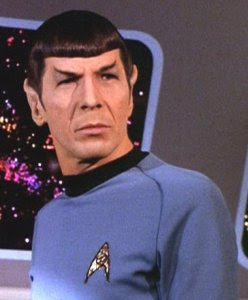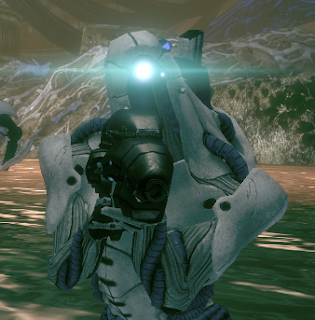
“Diplomacy is the art of saying "Nice doggie" until you can find a rock.”
“A diplomat is a person who can tell you to go to hell in such a way that you actually look forward to the trip.”
Professor Jackson brought up the question of what would be a better course of action when interacting with extraterrestrial life forms: coexisting as states with rules and regulations or interacting on an individual basis? I believe both forms of interaction have merits and disadvantages. Concerning state to state interaction, for one, I feel that coexistence and the creation of boundaries rather than integration or openness is a scenario that is prone to conflict. When a wall is placed between two communities, one always wonders what is going on the other side of the fence and whether or not whatever is going on is potentially dangerous. There is also often the axiom “the grass is always greener on the other side” and sometimes jealously can arise too. Physical separation or the impeding of interaction also helps polarize differences and stigmas. Separation is also a statement that another group is not worthy enough or too “alien” to associate with, which in turn leads to hostilities. It is through interaction that understanding can be reached and stigmas dismantled. In many ways I also see the separation of the aliens and humans in "Speaker for the Dead" and "Xenocide" as reminiscent of segregation, which I believe has become commonly accepted as flawed and unethical. State negotiations however could provide benefits however. These benefits might include the state sanctioned preservation of alien rights, culture and special territories such as holy sites. It could also lead to rules concerning commerce and trade that might prevent a less economically developed species from being taken advantage of. States can also help spearhead unity efforts and maintain peace through military strength. However, some governments, or individuals within governments do not desire peace. For example, in Star Trek VI (this is a spoiler) individuals of Starfleet and the Klingon Empire conspire together in order to maintain a Cold War between the two factions.
“I know that my unity with all people cannot be destroyed by national boundaries and government orders.” - Tolstoy
Individual interactions can also provide benefits as well as risks. Interactions between individuals can create friendships and partnerships that can overcome gross generalizations and stigmas. It can also enable individuals who wish to learn and discover one another’s culture to do so. These interactions can also pave the way for mutually beneficial economic relationships. On the other hand, some individuals might commit crimes against one another. Within all races and species there are deviant beings and if one interaction turns foul, then it could set back relations between groups drastically.
“We're all in this together. “
“United we stand; divided we fall.”
I would argue that moderation would be ideal in inter-sentient interaction. To go to either extreme of only state or only individual interaction would be folly. I would also argue against too many formal divisions or any segregationist measures. Instead, the states should be proactive in promoting individual and cultural interactions. Whether it is through organizing a ping pong tournament or sending a ballet troupe to another world, states can help bridge cultural gaps and foster unity. Economic integration can also be conducive to preventing conflict and increasing interdependence. Besides this, through openness, universalization (an advanced form of globalization) can occur and perhaps lead to beings from different species being judged as an individual and not by their ascribed identities.



